You are hereBlogs / WcP.Movie.Critic's blog / "A star you could look up to both on and off the screen": Hollywood legend, philanthropist Paul Newman 1925-2008
"A star you could look up to both on and off the screen": Hollywood legend, philanthropist Paul Newman 1925-2008
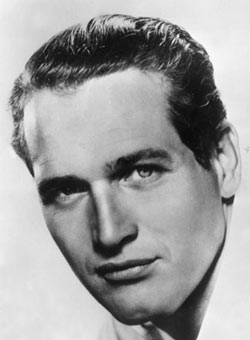
(quote)
Paul Newman, Oscar winner, box office mainstay, an actor's actor, a man's man on the screen and a role model on and off the screen, has succumbed to cancer. He was 83. With his engaging smile, the sardonic twinkle in his piercing blue eyes and his cool, confident air, Paul Newman was a consummate charmer, easily passing the test of superstardom. However, his aversion to the Californian lifestyle was never disguised. He preferred to stay well away from the glitzy milieu when he was not working there and dedicated himself to his charities, businesses, racing cars, family and wife, Joanne Woodward.
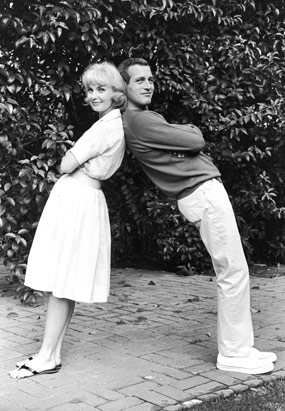
Famously faithful to her, he once joked: “Why go out for hamburger when you have steak at home?” She hated the metaphor. Explaining their relationship on another occasion, he said: “I make all the big decisions and she makes all the little decisions. For instance, if I want to live in California and she wants to live in Connecticut, we live in Connecticut. That’s not important, that’s geography. If she wanted the children to go to a certain school and I wanted them to go to a different one, they go to the one she wanted them to go to. Those things are really not important decisions. If she insists I become a Democrat, not a Republican, then I become a Democrat. Those things are not important. But the things that are important are: what will be our foreign policy decision regarding China? Those are the things I take to heart and she has the little decisions.”
Last January Newman and Woodward celebrated their golden wedding at their home in Westport, Connecticut, for which they left Beverly Hills in 1962. Only once in their happy half-century did he actually walk out on her. He returned 10 minutes later because he had no idea where he could go.
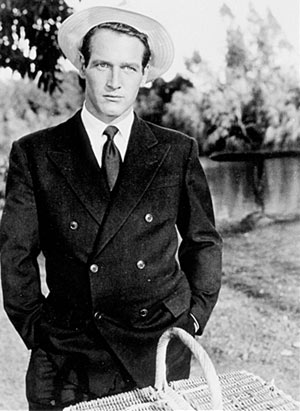
Paul Leonard Newman was born in Shaker Heights, Cleveland, Ohio on January 26, 1925. His father was Jewish, his mother a Catholic who turned Christian Scientist. He was their second son. The family was prosperous, owning a successful sporting goods retail business. His father was a good businessman with tough standards. If young Paul wanted a baseball mitt, even though the store was stuffed with them he would first have to earn the money to pay for it. “He survived the 1930s depression because of his reputation for honesty,” Newman said in an interview six years ago. “I learnt something about morality from him.”
At high school he discovered enjoyment in acting. He had a few months at Ohio University studying economics before being called for war service. Applying for naval pilot training he was rejected, not just for his then puny build, but also because his blue eyes were colorblind. He became a radio operator and rear gunner on torpedo bombers instead. After service in the Pacific he enrolled at Kenyon college, a private liberal arts institution in Ohio. He was in trouble after a bar room fight between the football team and town youths and lost his place as a linebacker. Acting was now his big interest and after graduating “magna cum lager”, as he put it, he acted in summer stock.
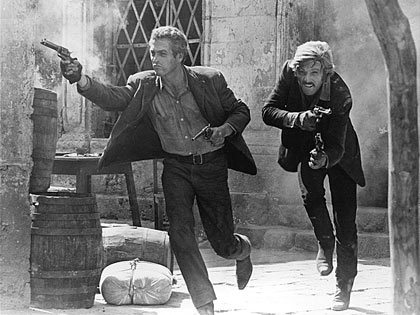
Newman went on to study acting at Yale, financing himself by selling encyc- lopedias when his govern- ment grant ran out. From there it was a short hop to New York and the Actors Studio under Lee Stras-berg, where “the Method” was taught to those deemed talented enough to enroll. Extraordinarily handsome, with a profile that looked as if it should be on a Roman coin, he soon attracted casting agents. He met Woodward in 1953 on Broadway when they were understudies in the same play.
His defining film role did not come until 1961 when he played “Fast Eddie” Felson, a glib champion pool player mercilessly manipulated by a wily and ruthless George C Scott in The Hustler. At last Newman’s strength, subtlety and intelligence was recognized, enabling him to shake off the pretty face handicap that had bedeviled his early films. He followed this success as an unprincipled, amoral, selfish Texan cattle-raiser in Hud, one of the greatest redneck characterizations ever, and it was another big hit.

Of the many roles he played sub- sequently, the joke- heavy buddy movie Butch Cassidy and the Sundance Kid, in which he teamed up with Robert Redford to play a pair of bank and train robbers, has proved one of the most memorable. There was talk a year or two ago of a reunion with Redford, but it came to nothing, and last year Newman announced his definite retirement, citing problems with memorizing lines, acting confidence and invention. He was to have directed Of Mice and Men, due to open in October at the Westport Country Playhouse, close to his home, but in May stepped down for health reasons. He was quietly being treated at the Memorial Sloan-Kettering Cancer Center, New York, and lung cancer (he had for years been a heavy smoker) was suspected.
From the start of his career, Newman limited his social time in Hollywood, telling an interviewer he did not want to fall into the trap of material success that came so easily in the film world. He made an effort to appear grungy, wearing jeans and running shoes as well as a beer-can opener as a necklace. He shunned Hollywood for an 18th-century farmhouse in Westport, with an apple orchard and pool. Newman hated signing autographs or being asked to display his best-known physical feature, his blue eyes. "I try not to be hurtful," he said. "I say something like, 'If I take off my glasses, my pants will fall down.' Or, if they're insistent, I say, 'Sure, Ill take off my dark glasses if you'll let me look at your gums.' Fair's fair." Asked once about his looks, he said his children called him "Old Skinny Legs."
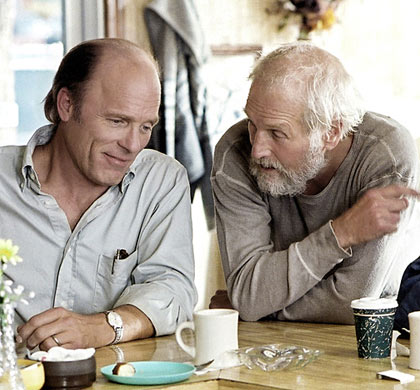
Newman's biographer, Eric Lax, wrote that the actor liked to confound the Hollywood elite by driving a Volkswagen in which he had installed a Porsche engine. His cars became a joke with friends such as Robert Redford, who once gave Newman a Porsche as a present. The car, however, was a wreck -- dented from an accident and missing its engine. Redford paid a dump truck driver to deposit the car in Newman's driveway with a note attached: "Happy birthday."
Paul Newman was a star you could look up to both on and off the screen. In his lifetime he raised more than $250 million for charities and social welfare organizations, primarily from his food company, Newman’s Own. He founded the company in 1982 with his next-door neighbour A E Hotchner, the biographer of Ernest Hemingway. The brand, with Newman’s face on the jar, began with salad dressing before expanding into other products such as pasta sauce, salsa and wines. All the proceeds, after taxes, have gone to a variety of charities. In honor of Scott, a son from his first marriage, Newman organized in 1988 a camp in Connecticut for children with cancer and life-threatening illnesses.
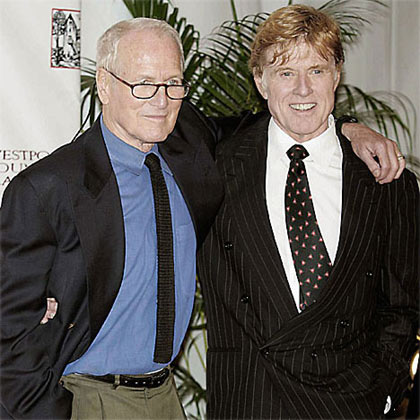
“Paul’s heart and soul were dedicated to helping to make the world a better place for all,” said Robert Forrester, vice- chairman of the Newman’s Own Foundation. “What started as almost something of a joke in the basement of his home turned into a highly respected multi-million-dollar-a-year food company. And, true to form, he shared this good fortune by donating all the profits and royalties to many charities around the world.”
(unquote)
Photos courtesy of Keystone/Getty Images, Fotos International/Getty Images, Everett Collection, Twentieth Century Fox, Demmie Todd and Stringer/usa-Reuters
Original Source: Times Online UK, Walters' Last Interview With Paul Newman (with videos), Washington Post, and Frankly My Dear… (Orlando Sentinel)
Related Articles: Read Paul Newman's official obit, send a tribute to his memory and The Loss of a Legend: Paul Newman Dies
Image Galleries: Paul Newman: 30 Unforgettable Roles


















